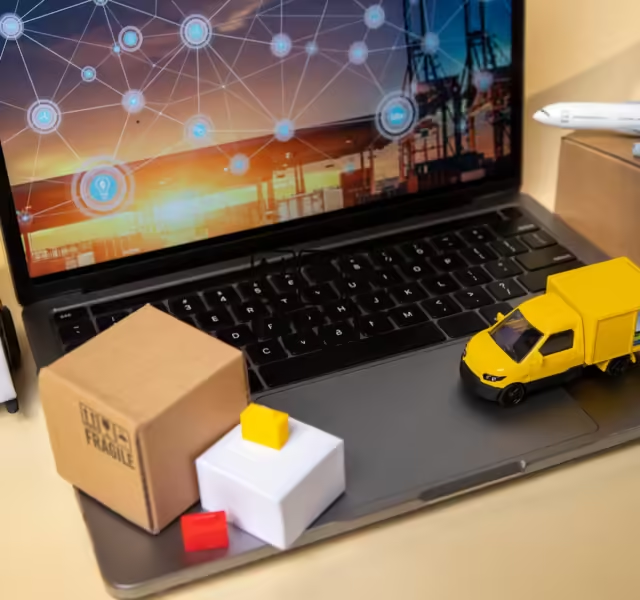
What should you do if you receive an invitation to one of the regular events in our lives but don’t know where it will be taking place? You have to get there the old-fashioned way, by asking others along the route or repeatedly calling the inviter and bothering them and other individuals you meet along the way. alternatively, you may do a search privately using your smartphone or the gps tracking system in your automobile. These navigational applications are altering how all truck companies find, and contact people and locations for events.
We may send you the navigation apps listed below.
Application for On-Demand Taxi Booking.
GPS application for route tracking
Location-Based Advertisements for Vehicle Tracking Applications
Applications for tracking couriers
Enquiry
Zimo starts the project approach by following its predetermined methodology. With the client’s cooperation, we will begin the process by doing thorough research and analysis on the project requirements. After doing a requirement analysis of all truck companies, we will move on to the project’s designing phase. Once the design is complete, the project’s development will begin, and we will continue to conduct daily check-ins and frequent reporting. Then, we offer your actual mobile app or website.
We are all aware that logistics are there wherever there is consumerism. And there is no doubt that the IT sector has elevated the level of consumers. Technology has managed to make everything simple by putting everything at your fingertips. It has engaging experiences for both customers and business owners. All due to the dynamic services for developing logistics android truck gps.
The modern android truck gps app development business is called Zimo. We have developed software for logistics services for businesses of all sizes and operate on a worldwide basis. With expert logistics management app development, our team has consistently been able to provide logistics service providers with the greatest opportunity to see their businesses flourish.
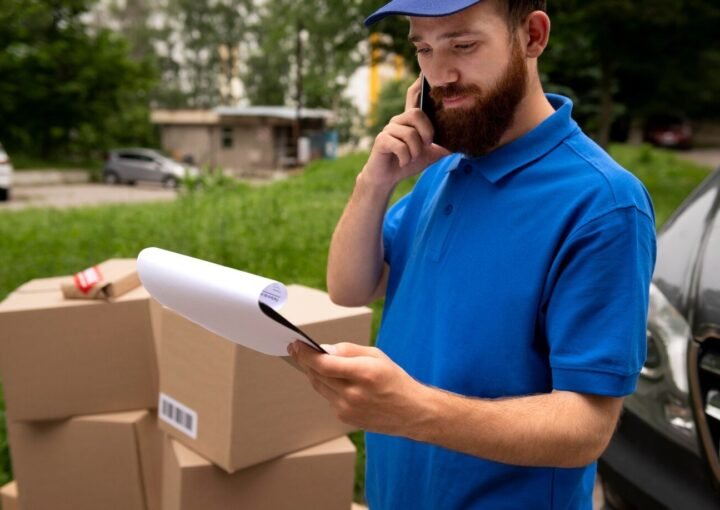

Geolocation
The dispatchers have complete control over the whole corporate fleet thanks to the geolocation feature that enables real-time vehicle tracking. Each vehicle has a GPS tracker attached, and the driver’s mobile device also has one, so their precise whereabouts are always known. The geolocation feature also enables WiFi signal-based geolocation for mobile devices without GPS trackers. There are several reasons to be aware of the vehicle’s present location:
Precise arrival time prediction for customer notification.
Detection of idle cars, which may be a sign of an accident or a malfunction. In such circumstances, the dispatcher can change the customer's arrival time and help the driver.
Detection of route changes that can be signs of car theft.
Chat
The chat feature in a logistics programme may be used to communicate with clients and field staff alike. Dispatchers may quickly help drivers through chat, for instance, by having them inform them of a road closure that creates a delay or a vehicle breakdown and receiving directions from the dispatcher.
The staff members in charge of dealing with client inquiries can respond to inquiries through chat on the terms and conditions of the business as well as the progress of a particular delivery.
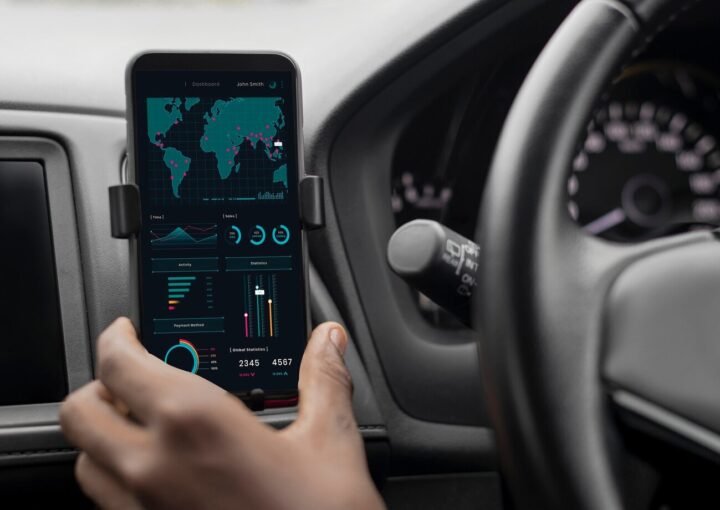
Management of fleet
A dashboard for keeping track of the fleet of corporate vehicles’ current state might be part of the admin pane of our android truck navigation. The dispatcher can quickly identify which cars are idle, in use, or undergoing maintenance. The android truck navigation app gathers the geolocation information and shows each vehicle’s position.
The same functionality also handles input from the drivers. The driver will input the information into the app in the case of a breakdown to alert the manager that the vehicle needs to be inspected or repaired.
The same dashboards may display a wide range of other data, including each vehicle’s age, the dates of its most recent routine inspection, a history of maintenance, and the dates of its scheduled inspections.
Inventory and asset management
Thousands of shipments are handled by the logistics industry, and they might be anywhere at any time – on their way to the warehouse, within the warehouse, in a truck, previously delivered, lost, or misplaced… The organization can better track each item and locate them with the aid of the logistics app.
All objects should be labeled with QR codes, RFID (radio-frequency identification) tags, or NFC (near-field communication) tags to enable tracking. The system can locate the location of each item thanks to the warehouse staff scanning the QR codes or tags and entering the data.
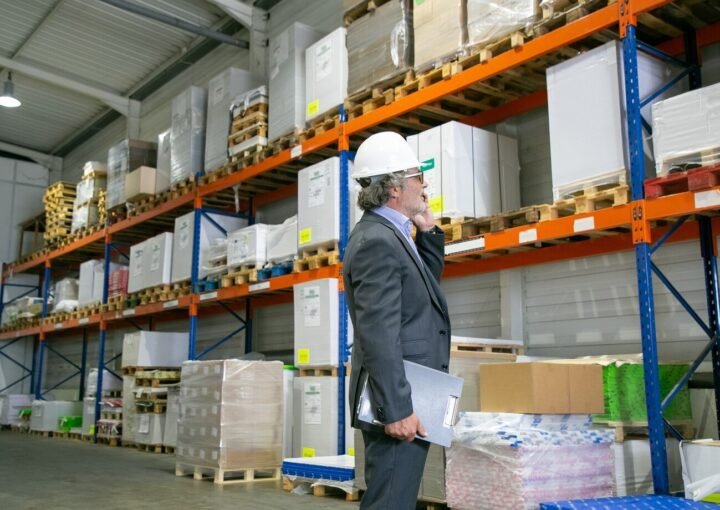

Data on traffic and route
Drivers choose their routes to the destination and predict their arrival times before beginning the journey. The consumer is informed of this data when it is entered into the system. While driving, the motorist could encounter unforeseen circumstances like road closures or traffic jams, which can greatly lengthen the trip.
The logistics firm can use the traffic layer in the Google Maps API to display the most recent information about the traffic condition in order to prevent or reduce the delay. If there is an accident, a road maintenance, or heavy traffic up ahead, the motorist may review the map and change their course to avoid the obstruction.
Vocal guidance
Although there are several free and paid route navigators available on the market, it can be a good idea to integrate the navigation service as one of the features of your logistics app.
Anyone who has ever driven a car on an unknown route understands how difficult it is to maintain concentration on the road and simultaneously consult the map. By giving the directions without diverting the driver’s attention, voice navigation resolves the issue.
The majority of voice navigation systems receive updates on traffic conditions, road conditions, speed restrictions, significant repairs, and closures and utilize this information to assist drivers in planning their routes. We have created an app for truckers to help them with a comfortable and confident driving experience.
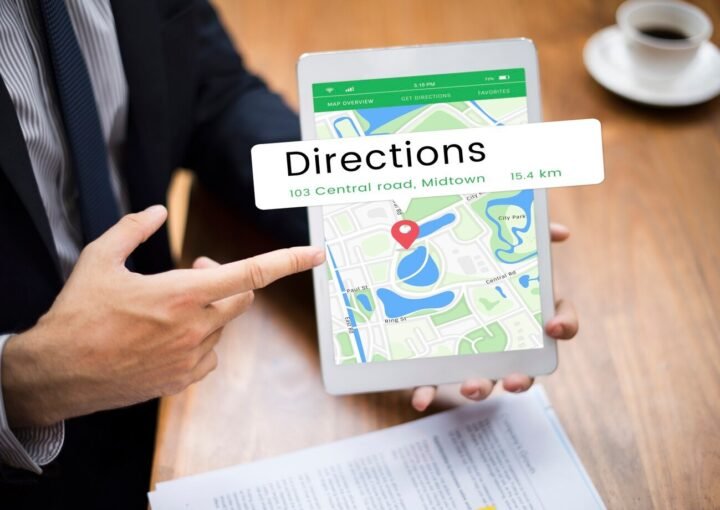
As you can see, logistics applications are as versatile as you may think. Their usefulness is solely based on the particular needs of your company.A logistic industry today gains an edge over rivals as soon as it implements a software solution to monitor and manage its fleet and inventory.Apps for logistics enable time and money savings, resource planning that maximizes customer happiness, claim reduction, and cost savings. They assist in enhancing worker and driver safety in warehouses and in extending the useful lives of cars and other equipment.


